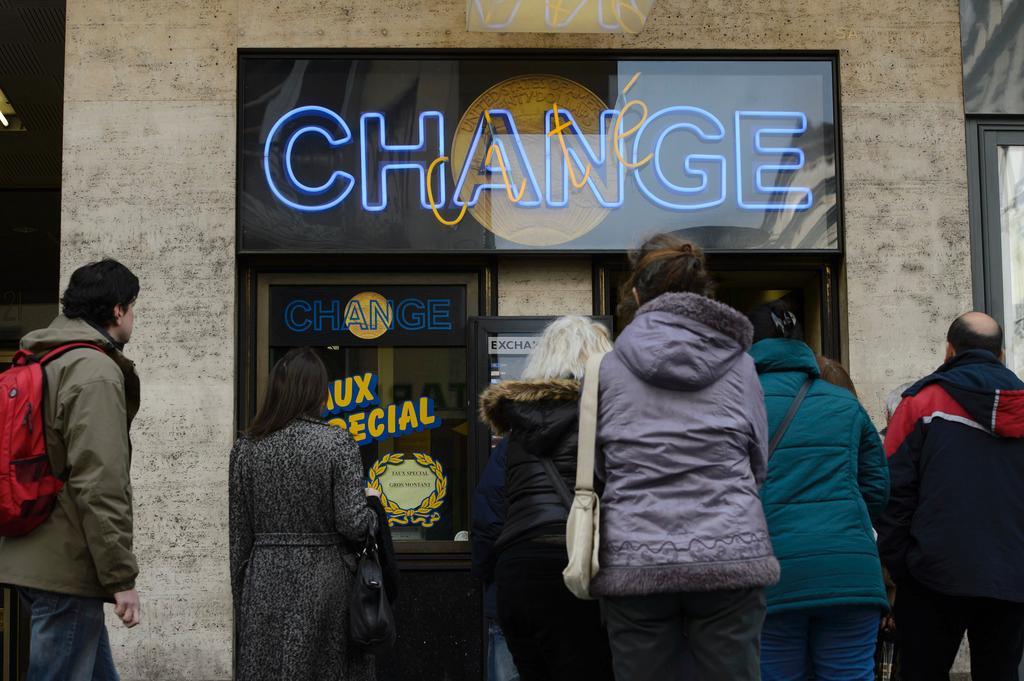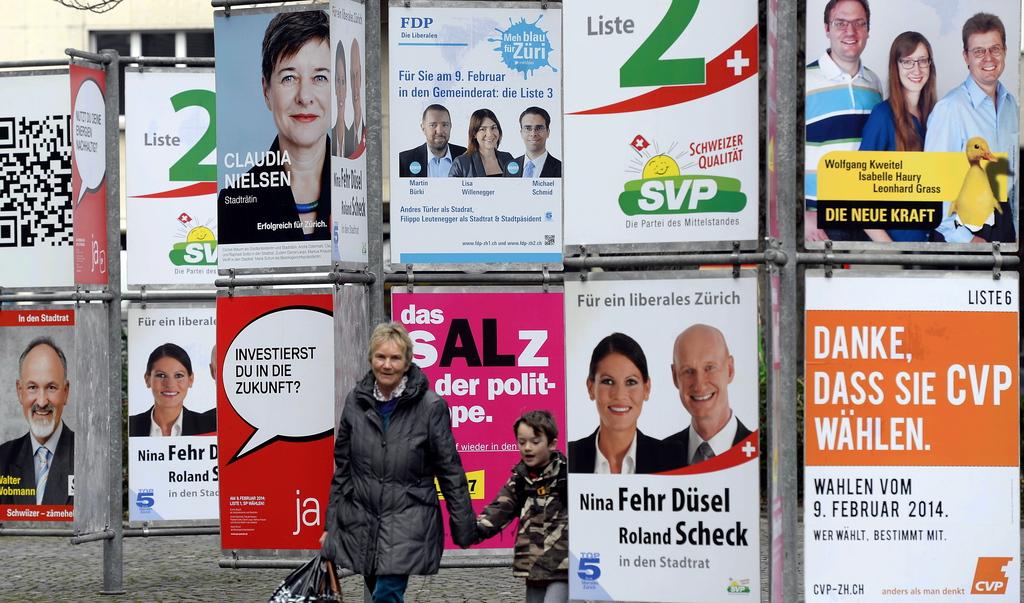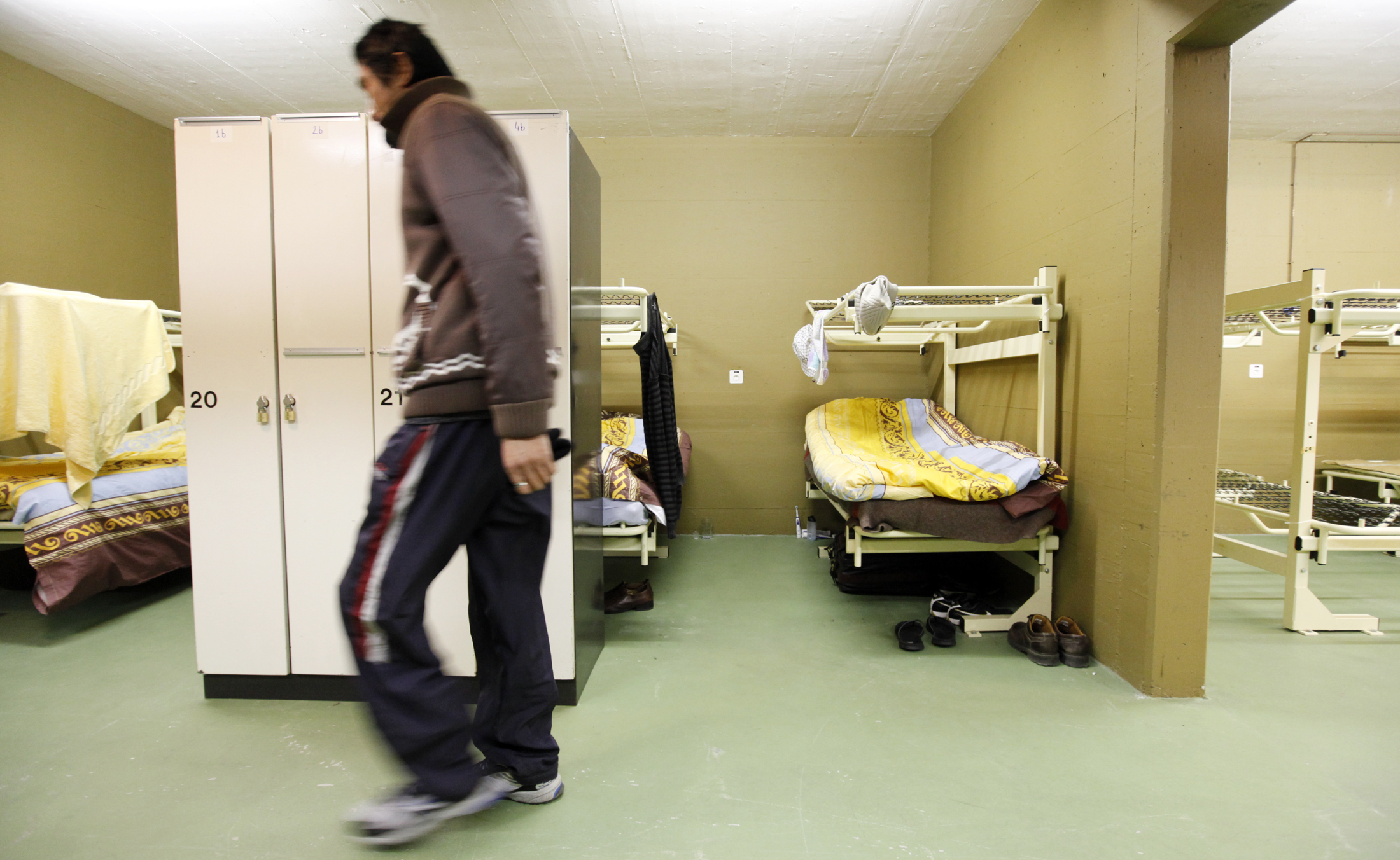Political centre-right on the rise, say polls

Four months ahead of October’s parliamentary elections, support appears to have shifted from the centre towards the right, according to the latest opinion poll. Asylum, immigration and integration remain citizens’ main concerns.
The centre-right Radical Party has made the biggest gains since the previous poll in March. It remains the third-strongest political group on 17.1% compared with 15.1% in the 2011 elections, behind the conservative right Swiss People’s Party (26.1%; down 0.5%) and the leftwing Social Democrats (19.3%; up 0.6%) but ahead of the centrist Christian Democrats (11.5%; down 0.8%).
Detailed results show the Greens on 7.4% and the small centrist Conservative Democratic Party losing most support and falling to 4.4%, both down 1%.
“The centre-right has gathered speed and has a clear profile now,” says political analyst Claude Longchamp, director of the GfS Bern research and polling institute.
He says it is a revival of sorts for the Radicals at the expense of several other parties as it successfully attracts new voters.
“The Radicals are in a comfortable position for the launch of the election campaign after the summer break,” Longchamp adds.
But the small centrist parties which emerged four years ago appear to be struggling to hold their positions.
“They are not yet in the grip of election fever,” Longchamp says.
Overall stability
Despite the apparent shifts, Longchamp stresses the overall stability in Switzerland’s party-political system. “Taking a long-term perspective, there are only small changes,” he says.
The poll was carried out among 2,009 citizens in all language regions between June 1 and June 12. Swiss abroad were not included in the survey.
The margin of error is 2.2%.
The survey was conducted by the leading GfS Bern research and polling institute on behalf of the Swiss Broadcasting Corporation (SBC), swissinfo.ch’s parent company.
It is the second of four polls this year in the run-up to October’s parliamentary elections.
The rise of the People’s Party, which began in the 1990s, is not likely to continue to a similar degree in the October elections, according to Longchamp.
At the same time, a trend to a polarised political system with a strong right and a strong left may have peaked in the 2007 elections.
“The overhaul of the party system has lost some of its dynamics,” Longchamp concludes. Eight years on, Switzerland’s traditional multi-party system sees the moderate right gaining ground.
Elections to the country’s two chambers of parliament take place every four years in October. The new parliament then chooses the seven-member government.
Main concerns
Similar to four years ago, respondents in the poll primarily expect politicians to tackle asylum, immigration and integration issues.
In the list of citizens’ concerns, relations between Switzerland and the European Union come second, followed by the environment, social security (old age pension/poverty) and unemployment.
GfS political scientist Martina Imfeld says there are regional differences, with respondents in the Ticino region putting job issues top.
She also points out that health insurance costs appear to have lost some of their urgency for citizens.
The poll found that 44% of respondents agree with the government’s refugee policy. In addition, 30% said Switzerland was taking in too many people, while 21% want the authorities to be more generous.
Europe
It may come as a bit of a surprise, but there is currently a noticeable absence of broad public discussion on Switzerland’s future ties with the European Union.
Neither the Swiss government and political parties nor Brussels has an interest in unleashing a fierce debate on the highly controversial issue, according to Longchamp.
“This debate will most likely come back with a vengeance in 2016,” he says.
Longchamp believes that the election campaign ahead of October 14 might be marked by a distrust of the political elite in general and attacks against individual members of the cabinet in particular.

In compliance with the JTI standards
More: SWI swissinfo.ch certified by the Journalism Trust Initiative












You can find an overview of ongoing debates with our journalists here . Please join us!
If you want to start a conversation about a topic raised in this article or want to report factual errors, email us at english@swissinfo.ch.